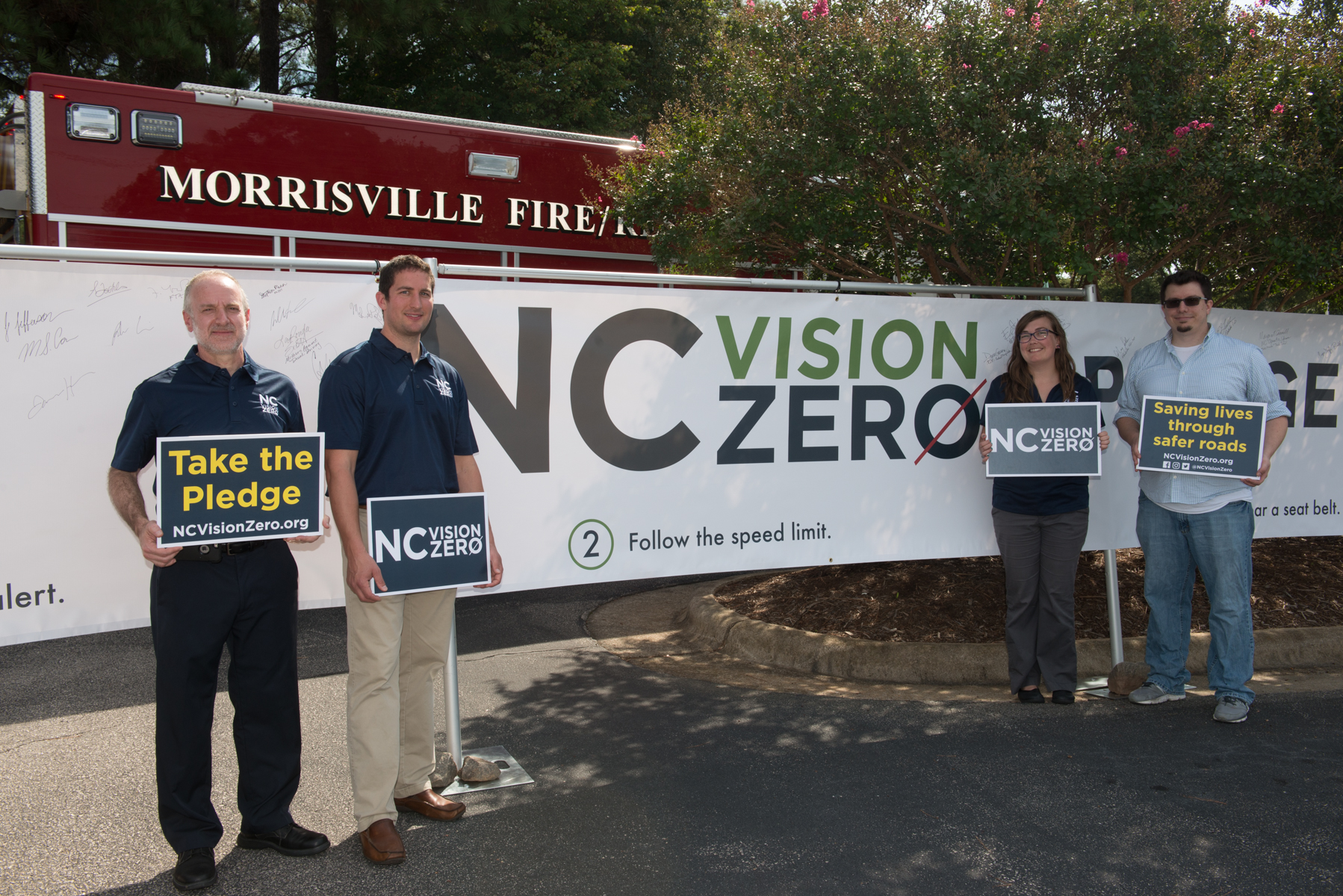North Carolina Moves Toward Zero Roadway Deaths with the Help of ITRE

ITRE researchers (left to right) Greg Ferrara, Daniel Findley, Tracy Anderson and Matthew Kuliani assist at the NC Vision Zero statewide kickoff in Raleigh on October 3, 2016. State officials, public safety agencies and other NC Vision Zero partners gathered at NC State University to launch the new initiative.
Earlier this October, ITRE helped to launch NC Vision Zero, a new initiative focused on eliminating deaths North Carolina’s roadways. Recognizing that the number of people who are killed on North Carolina roads each year — 1,387 in 2015 alone — is unacceptable, multiple agencies and stakeholders from across the state have come together with the goal of cutting roadway fatalities and serious injuries in half in the next 15 years. The ultimate aim of the initiative is to end all roadway deaths, with a target of zero fatalities.
“This is an ambitious goal, but it is not beyond our reach,” said Transportation Secretary Nick Tennyson. For the last several years, ITRE has been heavily involved in the formation and implementation of NC Vision Zero, including developing the website, creating data visualization tools, conducting supportive research, and more. At the heart of efforts of ITRE and other initiative partners are the “Five E’s of NC Vision Zero.” These include:
- Education to prepare drivers through lifelong learning,
- Enforcement of traffic laws,
- Engineering vehicles and roadways to prevent crashes and forgive human mistakes,
- Emergency response to reduce the severity of injuries, and
- Everyone sharing the responsibility of keeping North Carolina roads safe.
“We want to educate and empower North Carolinians. Every decision on the road has a ripple effect — the way we walk, drive, and bike sets a standard that influences people around us. The poor decisions of a few can cause deadly collisions, but we can all intervene to stop risky behaviors, prevent crashes, and transform the traffic safety culture in our state,” said Tracy Anderson, ITRE researcher and the Communications Specialist for NC Vision Zero.
If the current trend of yearly fatalities continues, more than 6,300 lives are at stake in the next five years. The public can help stop this trend by following traffic laws, reducing risky behavior like using a phone while driving, and advocating for others to do the same. To learn more about NC Vision Zero and how you can be a part of saving lives, visit http://ncvisionzero.org/, or contact Tracy Anderson at tracy_anderson@ncsu.edu.